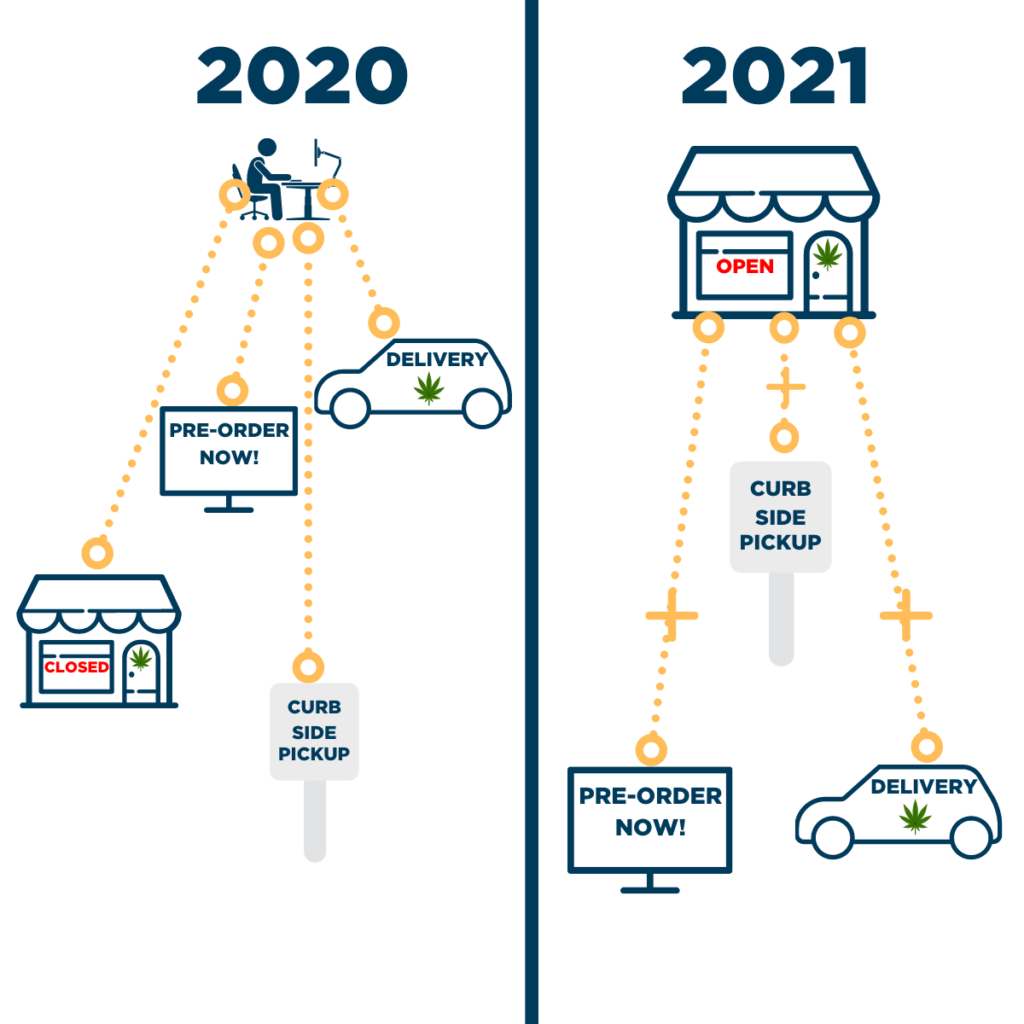Every industry has felt the effects of COVID-19 over the 15 months, and the cannabis industry is no exception. In the first weeks after the virus was declared a global pandemic, there was widespread uncertainty about what was to come. Panic buying ensued for items including food, toilet paper, and even cannabis products. While the slight uptick in sales was great, business owners were left in a state of flux. Were their businesses going to have to close for an unforeseeable amount of time? What would they do with all their product? Fortunately, in nearly every state with legal cannabis markets, cannabis businesses were deemed “essential,” alongside grocery stores and pharmacies although, it was not left unimpacted. The cannabis industry had to adapt to solve issues that arose due to COVID-19. Many of the adaptions created due to the pandemic might stick around in the long run.
The industry was already feeling the effects of the virus before it even spread to the United States. Manufacturers and factories being shut down in China caused a supply shortage for many items such as vape cartridges and grow lights. When the virus arrived in the United States, the combination of a supply shortage and an increase in demand was a recipe for disaster. This caused businesses to search for new sources for their supplies. While the global supply chain was heavily affected by the pandemic, the domestic supply chain was not as harshly affected and became an alternative source. Using both local and global supply chains allow for a combination of cost-effectiveness and security from crises such as COVID-19.
The pandemic also resulted in less direct customer contact. As a new industry, businesses rely on their employees’ knowledge to assist customers with their needs. Social distancing, masks, limited capacity, or closed storefronts made interaction difficult. To combat this, many businesses created alternative methods for shopping for customers, such as pre-ordering online, curbside pick-up, or delivery. There is still uncertainty if these practices will stick around or become common practice post-pandemic, but some cities are already acting to keep these customer-friendly methods around. Denver, for example, recently passed the Cannabis Omnibus Bill. This bill, among other things, will create a new delivery permit for businesses to utilize.
COVID-19 brought some new, innovative ideas to the cannabis industry. As time moves forward, it will be interesting to track what adaptations businesses made during the pandemic stick around and which ones will be retired.
